
Find Help
More Items From Ergsy search
-

What skills are important for a career in nursing?
Relevance: 100%
-

What are the career progression opportunities for NHS nurses?
Relevance: 85%
-
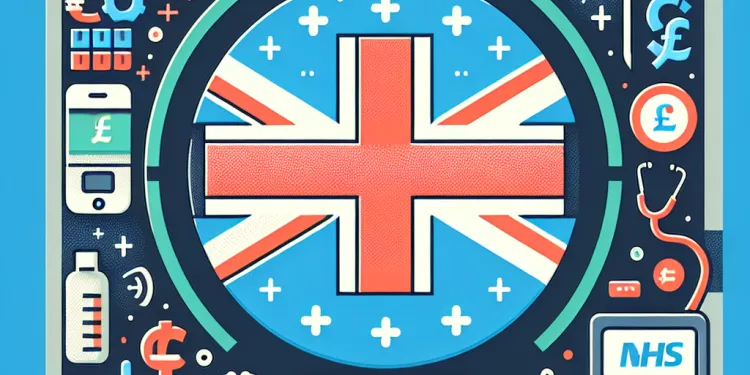
How can I become an NHS Nurse in the UK?
Relevance: 59%
-

How can I advance my career as a primary care support worker?
Relevance: 55%
-
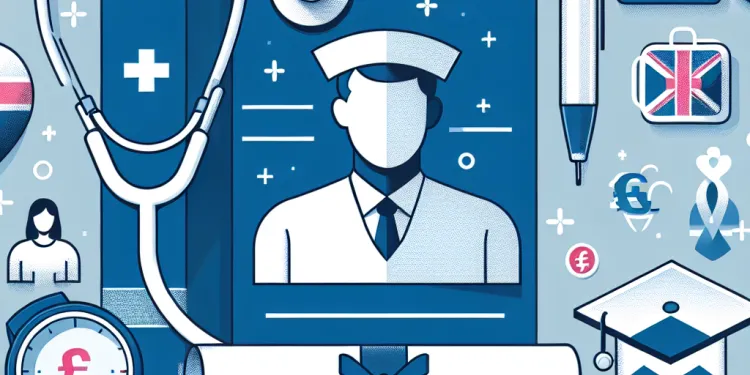
Can I become a nurse in the NHS with a nursing diploma?
Relevance: 55%
-
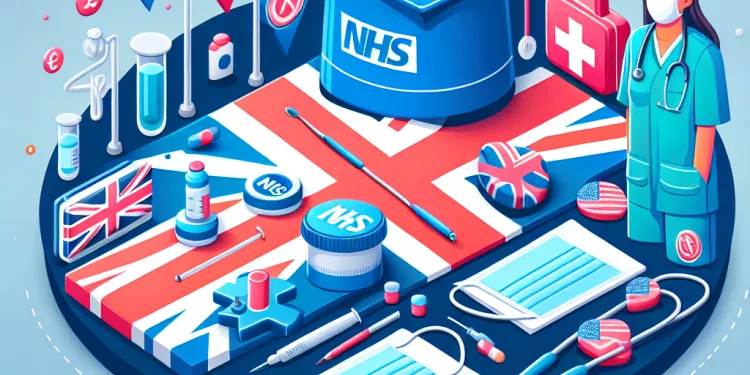
Are there any apprenticeship routes to becoming an NHS nurse?
Relevance: 52%
-

What types of nursing degrees can I pursue?
Relevance: 52%
-
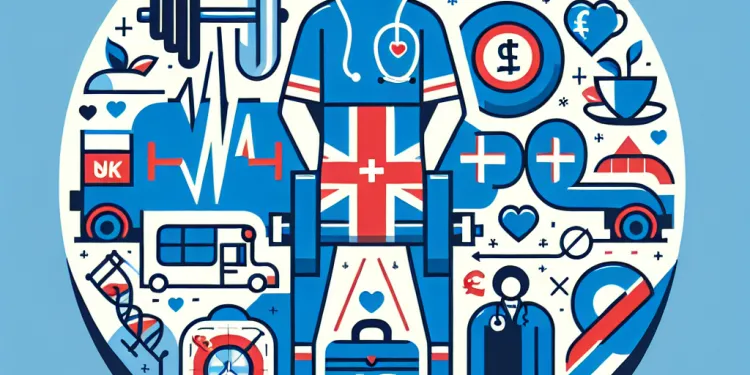
How physically demanding is a career in NHS nursing?
Relevance: 52%
-

Can I become an NHS nurse if I have international nursing qualifications?
Relevance: 52%
-
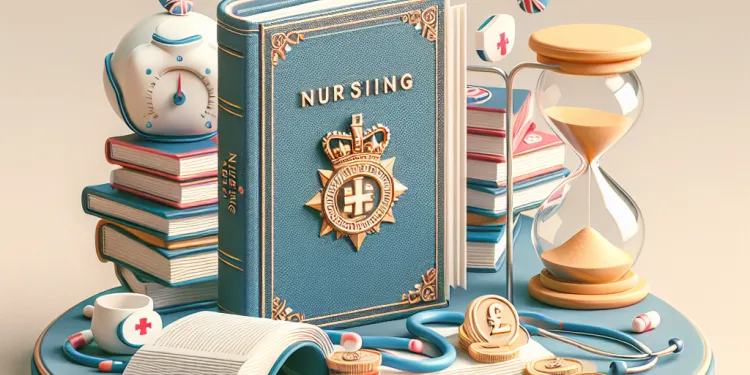
Is it possible to study nursing part-time?
Relevance: 51%
-

What is the process for applying to a nursing degree course?
Relevance: 51%
-

What GCSEs or A-Levels do I need to become a nurse?
Relevance: 50%
-
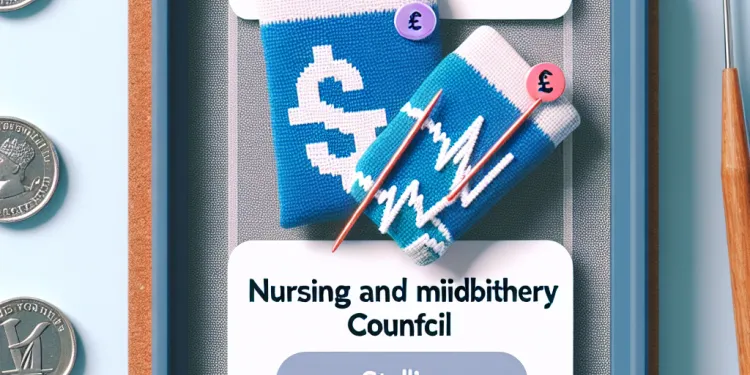
Do I need to be registered with the Nursing and Midwifery Council (NMC) to work as an NHS nurse?
Relevance: 49%
-

How does the National Trust support career development?
Relevance: 49%
-

How important is work experience for entering a nursing program?
Relevance: 48%
-
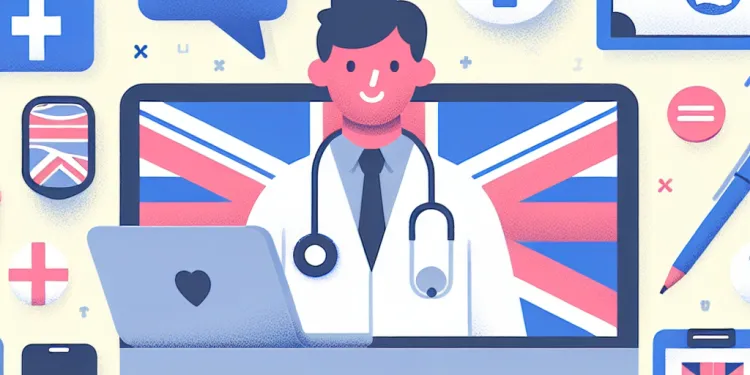
What support systems are available to NHS nurses for continuing professional development?
Relevance: 47%
-

How long does it take to become an NHS nurse?
Relevance: 45%
-

Is there a minimum age requirement to start nurse training?
Relevance: 44%
-
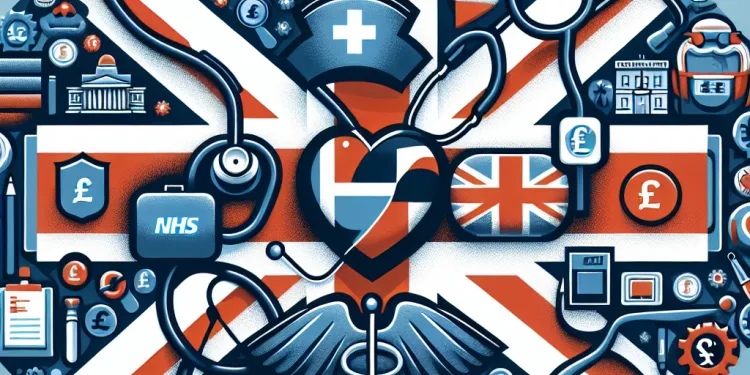
What are the basic educational requirements to become an NHS nurse?
Relevance: 44%
-

How can I improve my skills in primary care support?
Relevance: 42%
-

What funding options are available for nursing students in the UK?
Relevance: 41%
-

Can I specialize in a certain area of nursing with the NHS?
Relevance: 38%
-

The role of residential and nursing homes
Relevance: 37%
-

The role of residential & nursing homes
Relevance: 37%
-

What is the impact of a professional negligence claim on a professional's career?
Relevance: 36%
-

How are care homes different from nursing homes?
Relevance: 36%
-

What qualifications do care home staff have?
Relevance: 35%
-

How do I choose a good nursing home?
Relevance: 34%
-
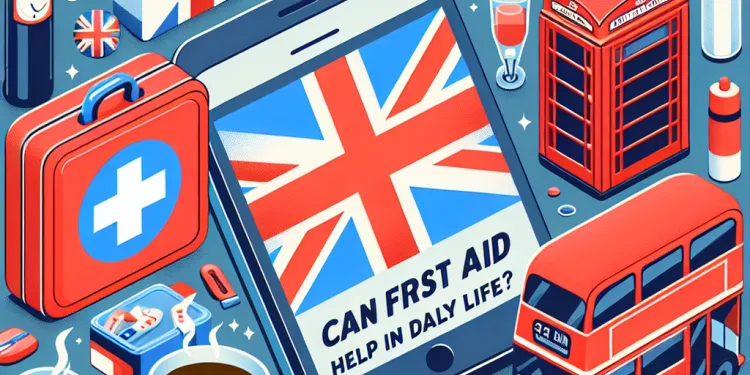
Can first aid skills help in daily life?
Relevance: 34%
-

Can learning a new skill be considered a hobby for older adults?
Relevance: 33%
-

How can I practice first aid skills effectively?
Relevance: 33%
-

Can I attend open days to learn more about nursing programs in the UK?
Relevance: 32%
-

Is live-in care an alternative to nursing homes?
Relevance: 32%
-

Teachers Pension Explained | All you need to know | Final Salary & Career Average Earnings
Relevance: 30%
-

Will I still have access to doctors and nurses on a virtual ward?
Relevance: 30%
-

Are there mentorship programs for community helpers?
Relevance: 29%
-

GP Nursing Most Common Medications UK.
Relevance: 28%
-

Are there academic courses for aspiring primary care support workers?
Relevance: 26%
-

What help is available to primary care support workers?
Relevance: 26%
-

South London Arrhythmia Nurses Forum (16 June 2022)
Relevance: 26%
Communication Skills
Effective communication is a cornerstone of nursing. Nurses must interact with patients, families, and healthcare professionals clearly and compassionately. This involves not only verbal communication but also active listening and written documentation. Strong communication skills help in accurately assessing patient needs and providing emotional support.
Empathy and Compassion
Empathy and compassion are essential qualities for nurses. Understanding and sharing the feelings of patients can significantly improve the quality of care provided. These skills foster trust and comfort, enabling patients to feel more at ease during stressful situations.
Critical Thinking
Nurses constantly encounter complex situations that require quick and sound decision-making. Critical thinking involves analysing information accurately and making informed decisions to provide the best possible care. This skill helps in evaluating clinical situations and anticipating potential complications.
Attention to Detail
Attention to detail is crucial in nursing to ensure patient safety and effective treatment. Nurses must carefully monitor vital signs, administer medication accurately, and observe changes in a patient’s condition. This vigilance helps prevent errors and ensures high-quality care.
Technical Skills
As the healthcare field increasingly relies on technology, nurses must be proficient with medical equipment and electronic health records. Technical skills include the ability to operate medical devices, understand diagnostic tools, and utilise healthcare software efficiently. Being technologically adept enhances the efficiency and accuracy of patient care.
Organisational Skills
Nurses often manage multiple patients and tasks simultaneously. Strong organisational skills are vital to prioritise effectively and ensure that responsibilities are completed in a timely manner. These skills assist in maintaining a structured and efficient workflow within a fast-paced healthcare environment.
Teamwork and Collaboration
Nursing is inherently collaborative. Nurses work closely with doctors, fellow nurses, and other healthcare professionals to provide comprehensive care. Teamwork skills involve being able to work harmoniously with others, share information effectively, and contribute to collective decision-making.
Emotional Resilience
Working in healthcare can be emotionally demanding. Nurses often deal with challenging situations, including patient suffering and emergencies. Emotional resilience helps nurses cope with the stress of their job, maintaining their own well-being while providing compassionate care to patients.
Adaptability
The healthcare environment is dynamic and constantly evolving. Nurses must be adaptable to deal with changing circumstances, whether it's new medical procedures or unexpected patient needs. Adaptability ensures that nurses can provide consistent care in any situation.
Patient Advocacy
Nurses serve as advocates for their patients, ensuring that their rights and preferences are respected. This involves speaking up on behalf of patients, ensuring they receive necessary services, and providing information to help them make informed choices about their health.
Communication Skills
Good communication is important for nurses. Nurses talk to patients, families, and other healthcare workers. They must speak clearly and show they care. Good communication is not just talking; it is also listening and writing well. This helps nurses understand what patients need and give them emotional support.
Empathy and Compassion
Nurses need to be kind and understanding. Empathy means feeling what patients feel. This helps nurses take better care of them. Being kind helps patients trust nurses and feel comfortable, especially when they are upset or worried.
Critical Thinking
Nurses need to think carefully and make good decisions quickly. Critical thinking means looking at information and deciding what is best for the patient. This helps nurses solve problems and prevent issues before they happen.
Attention to Detail
Nurses must pay close attention to everything. They need to check vital signs, give medicine correctly, and watch for changes in how a patient is doing. This careful attention helps keep patients safe and make sure they get the right treatment.
Technical Skills
Nurses need to know how to use medical tools and computers. They should be able to use machines, understand test tools, and work with healthcare software. Being good with technology helps nurses care for patients better and more accurately.
Organisational Skills
Nurses take care of many patients and tasks at the same time. They need to be organised to know what to do first and finish their work on time. Being organised helps nurses keep everything running smoothly, even when things get busy.
Teamwork and Collaboration
Nurses work with doctors, other nurses, and healthcare workers. They need to be able to work well with others, share information, and help make decisions together. Teamwork means cooperating to give the best care to patients.
Emotional Resilience
Nursing can be tough emotionally. Nurses often see difficult situations, like patients in pain. Emotional resilience means staying strong and calm, even when things are hard. This helps nurses care for patients without getting too stressed themselves.
Adaptability
The healthcare world changes a lot. Nurses need to adapt to new things, like different procedures or patient needs. Being adaptable helps nurses provide good care, no matter what happens.
Patient Advocacy
Nurses speak up for patients. They make sure patients' rights are respected and they get the care they need. Nurses help patients understand their choices so they can decide what's best for their health.
Frequently Asked Questions
What communication skills are important for a career in nursing?
Effective verbal and written communication skills are crucial for nurses to interact with patients, their families, and other healthcare professionals.
Why is empathy important in nursing?
Empathy allows nurses to understand and share the feelings of their patients, creating better patient care and improving the patient relationship.
How does critical thinking play a role in nursing?
Critical thinking helps nurses assess patient conditions, make informed decisions, and solve problems effectively and efficiently in high-pressure situations.
What role does attention to detail play in nursing?
Attention to detail is essential in nursing to ensure medication accuracy, monitor patient symptoms closely, and avoid errors in patient care.
Why is time management important for nurses?
Time management skills help nurses prioritize tasks, manage multiple patients efficiently, and ensure all patient needs are met in a timely manner.
How does emotional resilience benefit nurses?
Emotional resilience helps nurses cope with stress, manage emotional responses, and maintain focus and professionalism even in challenging situations.
What technical skills are necessary for nursing?
Nurses need technical proficiency in using medical equipment, electronic health records, and understanding medical procedures.
Why is teamwork important in nursing?
Teamwork allows nurses to collaborate effectively with colleagues, ensuring comprehensive patient care and improving healthcare outcomes.
How important are problem-solving skills in nursing?
Problem-solving skills enable nurses to identify issues quickly, formulate solutions, and implement interventions to improve patient care.
What organizational skills are valuable in nursing?
Organizational skills help nurses manage patient records, schedule treatments efficiently, and maintain a structured work environment.
How does adaptability enhance a nursing career?
Adaptability allows nurses to handle changing situations, new technologies, and different patient needs without compromising care quality.
Why is patient advocacy an important skill for nurses?
Patient advocacy is crucial as nurses represent patients' interests, ensuring they receive necessary care and have their rights protected.
What role does leadership play in nursing?
Leadership skills help nurses guide healthcare teams, mentor junior staff, and take initiative in problem-solving and improving patient care.
How important is cultural competence in nursing?
Cultural competence is vital for understanding diverse patient backgrounds, ensuring effective communication, and providing culturally sensitive care.
Why is ethical judgment important for nurses?
Ethical judgment helps nurses make decisions that respect patients' rights and align with professional standards and legal requirements.
What interpersonal skills should a nurse have?
Interpersonal skills are necessary for building trusting relationships with patients and colleagues and facilitating effective teamwork.
How does physical stamina benefit nurses?
Physical stamina is essential for nurses to handle long shifts, assist patients physically, and remain alert throughout their duties.
How do observation skills enhance nursing practice?
Strong observation skills enable nurses to detect subtle changes in patient conditions, leading to timely interventions and improved outcomes.
Why is patience a crucial trait for nurses?
Patience helps nurses manage stressful situations, handle challenging patients, and provide better care by listening to patients' concerns attentively.
How do lifelong learning skills contribute to a nursing career?
Lifelong learning ensures nurses stay updated with the latest medical advancements, improve their skills continuously, and provide high-quality care.
What talking and listening skills do nurses need for their job?
Talking and writing clearly is very important for nurses. They need it to talk to patients, their families, and other people who help with healthcare.
Why is caring important in nursing?
Nurses care for people who are sick. Caring helps nurses understand how patients feel. This makes patients feel better.
When nurses care, they can help patients more. Caring builds trust. Patients feel safe to talk about their worries.
To understand and help more, nurses can:
- Listen carefully to patients.
- Use kind words and actions.
- Ask how the patient is feeling.
Empathy helps nurses understand how their patients feel. This makes care better and makes patients feel closer to the nurses.
How does critical thinking help nurses?
Critical thinking is when you think carefully about something. It helps nurses make good choices. Nurses use critical thinking to understand when someone is sick and decide the best way to make them feel better. They listen, ask questions, and think about what they know.
It is like solving a puzzle, putting the pieces together to see the big picture. This helps nurses take better care of patients. Tools that can help with this are asking questions, writing down ideas, and talking with other nurses.
Critical thinking helps nurses do their job well. It helps them check how patients are feeling. It also helps them make good choices and fix problems quickly, even when things are very busy.
If you need help reading, you can use tools like text-to-speech, which can read the words out loud to you.
Why is paying attention to small things important for nurses?
Nurses need to notice small things to keep people safe and healthy. Paying attention helps nurses:
- Give the right medicine at the right time.
- See if someone is getting better or worse.
- Tell doctors important information.
- Keep everything clean and tidy.
Using checklists and asking other nurses for help can be good ways to remember important details.
It is very important for nurses to pay attention to small details. This helps them give the right medicine, watch how patients are feeling, and not make mistakes when taking care of people.
Why do nurses need to plan their time well?
Nurses have many jobs to do each day. They need to help patients, give medicine, and talk to doctors. If nurses plan their time well, everything goes smoothly, and everyone stays safe.
Using a calendar or a list can help nurses remember what to do. This way, they can do their work on time and not forget anything important.
Good time management helps nurses do their jobs better. It means they can decide what needs to be done first, take care of many patients, and make sure everyone gets the help they need quickly.
How does being strong inside help nurses?
Being strong inside means you can handle your feelings well. For nurses, this is important because it helps them stay calm and do a good job, even when things are tough.
Here are some ways it helps:
- Nurses can feel less stressed.
- They can help patients better.
- It keeps them healthy and happy.
To be strong inside, nurses can try:
- Taking deep breaths when they feel upset.
- Talking to friends or family if they are worried.
- Doing fun activities after work to relax.
Being strong on the inside helps nurses stay calm and focused, even when things are hard. It helps them deal with stress and feelings while doing their job.
What skills do nurses need?
Nurses need special skills to do their job well. Here are some important ones:
- They need to know how to take care of people who are sick.
- Nurses must be good at using medical tools.
- They have to give medicines safely.
- Nurses need to know how to keep records of patients' health.
Nurses study and practice to learn these skills. If you want help learning, ask a teacher or use the internet. Look for videos or ask for a book with pictures. This can make learning easier.
Nurses need to know how to use medical tools and machines. They also need to be good at using computers to look at patient information and understand how to do medical tasks.
Why do nurses need to work as a team?
When nurses work together, they can help more people. A team can share jobs and make sure everyone gets the right care.
Working as a team means nurses can share ideas and learn from each other. This makes them better at their job.
If nurses talk and listen to each other, they can solve problems faster.
To get better at teamwork, nurses can use tools like:
- Lists - to keep track of things to do.
- Group chats - to share important news quickly.
- Meetings - to talk together and share ideas.
When nurses work as a team, they can help each other. This means patients get better care, and they feel better faster.
Here are some ways to make reading easier:
- Try using a finger to follow each word as you read.
- Read with a parent or friend who can help with hard words.
- Listen to an audiobook if that feels better for you.
Why are problem-solving skills important for nurses?
Nurses help people feel better. They need to be good at solving problems.
When people are sick or hurt, nurses have to think quickly.
They ask questions like:
- What is the problem?
- How can I help?
- What should I do next?
Tools to help nurses solve problems:
- Talking to other nurses
- Using computers
- Reading books about health
Nurses need to be good at solving problems. This helps them find issues fast, think of ways to fix them, and make things better for patients.
Here are some tips to make reading easier:
- Use a ruler or your finger to follow the words.
- Break big words into smaller parts.
- Read out loud. It helps to hear the words.
What helpful skills do nurses need to stay organized?
Being organized helps nurses do their job well. They can keep track of patient information, plan treatments on time, and keep their workspace tidy.
Why is being flexible good for a nurse's job?
Being able to change helps nurses do a good job. They can handle new situations, use new machines, and look after different patients. This way, everyone gets the best care.
Why do nurses need to speak up for patients?
Nurses help patients by speaking up for them. This is called patient advocacy. It is important because:
- Nurses make sure patients get the care they need.
- Nurses help patients understand their choices.
- Nurses listen to patients' worries and feelings.
To help with patient advocacy, nurses can:
- Use clear and simple words.
- Ask questions if something is not clear.
- Write down important information.
Patient advocacy is very important. Nurses help patients by speaking up for them. This makes sure that patients get the care they need. Nurses also make sure patients' rights are protected.
How does being a leader help in nursing?
Being a leader means helping and guiding others. In nursing, leaders show other nurses how to care for patients, solve problems, and work as a team. Leaders make sure everyone knows what to do and help them do their best.
Here are some tips to understand better:
- Watch videos about nurses and leaders.
- Ask questions if there’s something you don’t understand.
- Draw or use pictures to learn how nurses help and lead.
Nurses need leadership skills. This helps them guide healthcare teams, teach new staff, and solve problems. Leadership also helps them make patient care better.
Here are some tips to help with reading:
- Read slowly and take your time.
- Use a ruler or your finger to follow the words.
- Ask someone to read with you or help you if you need it.
Why is it important for nurses to understand different cultures?
It is important to understand people from different backgrounds. This helps doctors and nurses talk with patients and take good care of them.
Why is it important for nurses to make good choices?
Nurses help people feel better. They must make good choices because:
- Patient Safety: Making good choices keeps people safe.
- Trust: People trust nurses when they make good choices.
- Fairness: Good choices mean treating everyone fairly.
Nurses can use tools like checklists to help make good choices. Talking to other nurses or a mentor can also help.
Making good choices helps nurses decide the right thing to do. It makes sure they treat patients fairly and follow the rules.
What people skills does a nurse need?
A nurse needs to have good people skills to help others feel better. Here are some important skills:
- Listening: A nurse should be a good listener. They need to hear what people say about how they feel.
- Speaking Clearly: A nurse should talk in a way that people understand. This helps everyone know what is happening.
- Being Kind: A nurse should be kind and caring. This makes people feel safe and happy.
- Teamwork: A nurse should work well with other people. This helps everyone do their job better.
- Problem Solving: A nurse should find ways to fix problems when things go wrong.
Tips to help understand more:
- Use pictures to help remember.
- Ask questions if you don’t understand.
- Practice talking with friends or family.
People skills help you make friends with patients and coworkers. These skills are also good for working well in a team.
Why is being strong and fit good for nurses?
Nurses do a lot of moving and lifting. Being strong helps them work better and feel less tired.
Use pictures to show what nurses do.
Try using simple apps or videos to learn more about health.
Nurses need to be strong and have lots of energy. They work for a long time, help patients, and stay awake and focused at work.
How do looking skills help nurses do their job better?
Good watching skills help nurses notice small changes in how patients feel. This helps them act quickly and make patients better.
Why do nurses need to be patient?
Being patient helps nurses do their jobs better. It means staying calm and being kind, even when things are hard.
Here are some ways to help understand why patience is important:
- Stay Calm: Nurses work with people who are sick or hurt. They need to stay calm to help them feel safe.
- Listen Carefully: Patients often need extra time to say what they feel. Nurses listen and let them share their thoughts.
- Be Kind: Nurses show kindness so their patients feel cared for.
Tools that can help:
- Taking deep breaths can help nurses stay calm.
- Writing down notes can help remember important things.
- Talking to other nurses for advice can be helpful too.
Being patient helps nurses when things get busy. It helps them with hard patients and makes their care better. They can listen to what patients worry about.
How can learning new things help in a nursing job?
Lifelong learning helps nurses. It keeps them up-to-date with new medical knowledge. It helps them get better at their jobs. This way, nurses can take good care of people.
Useful Links
Have you found an error, or do you have a link or some information you would like to share? Please let us know using the form below.
-->
This website offers general information and is not a substitute for professional advice.
Always seek guidance from qualified professionals.
If you have any medical concerns or need urgent help, contact a healthcare professional or emergency services immediately.
Some of this content was generated with AI assistance. We’ve done our best to keep it accurate, helpful, and human-friendly.
- Ergsy carfully checks the information in the videos we provide here.
- Videos shown by Youtube after a video has completed, have NOT been reviewed by ERGSY.
- To view, click the arrow in centre of video.
- Most of the videos you find here will have subtitles and/or closed captions available.
- You may need to turn these on, and choose your preferred language.
- Go to the video you'd like to watch.
- If closed captions (CC) are available, settings will be visible on the bottom right of the video player.
- To turn on Captions, click settings .
- To turn off Captions, click settings again.
More Items From Ergsy search
-

What skills are important for a career in nursing?
Relevance: 100%
-

What are the career progression opportunities for NHS nurses?
Relevance: 85%
-

How can I become an NHS Nurse in the UK?
Relevance: 59%
-

How can I advance my career as a primary care support worker?
Relevance: 55%
-

Can I become a nurse in the NHS with a nursing diploma?
Relevance: 55%
-

Are there any apprenticeship routes to becoming an NHS nurse?
Relevance: 52%
-

What types of nursing degrees can I pursue?
Relevance: 52%
-

How physically demanding is a career in NHS nursing?
Relevance: 52%
-

Can I become an NHS nurse if I have international nursing qualifications?
Relevance: 52%
-

Is it possible to study nursing part-time?
Relevance: 51%
-

What is the process for applying to a nursing degree course?
Relevance: 51%
-

What GCSEs or A-Levels do I need to become a nurse?
Relevance: 50%
-

Do I need to be registered with the Nursing and Midwifery Council (NMC) to work as an NHS nurse?
Relevance: 49%
-

How does the National Trust support career development?
Relevance: 49%
-

How important is work experience for entering a nursing program?
Relevance: 48%
-

What support systems are available to NHS nurses for continuing professional development?
Relevance: 47%
-

How long does it take to become an NHS nurse?
Relevance: 45%
-

Is there a minimum age requirement to start nurse training?
Relevance: 44%
-

What are the basic educational requirements to become an NHS nurse?
Relevance: 44%
-

How can I improve my skills in primary care support?
Relevance: 42%
-

What funding options are available for nursing students in the UK?
Relevance: 41%
-

Can I specialize in a certain area of nursing with the NHS?
Relevance: 38%
-

The role of residential and nursing homes
Relevance: 37%
-

The role of residential & nursing homes
Relevance: 37%
-

What is the impact of a professional negligence claim on a professional's career?
Relevance: 36%
-

How are care homes different from nursing homes?
Relevance: 36%
-

What qualifications do care home staff have?
Relevance: 35%
-

How do I choose a good nursing home?
Relevance: 34%
-

Can first aid skills help in daily life?
Relevance: 34%
-

Can learning a new skill be considered a hobby for older adults?
Relevance: 33%
-

How can I practice first aid skills effectively?
Relevance: 33%
-

Can I attend open days to learn more about nursing programs in the UK?
Relevance: 32%
-

Is live-in care an alternative to nursing homes?
Relevance: 32%
-

Teachers Pension Explained | All you need to know | Final Salary & Career Average Earnings
Relevance: 30%
-

Will I still have access to doctors and nurses on a virtual ward?
Relevance: 30%
-

Are there mentorship programs for community helpers?
Relevance: 29%
-

GP Nursing Most Common Medications UK.
Relevance: 28%
-

Are there academic courses for aspiring primary care support workers?
Relevance: 26%
-

What help is available to primary care support workers?
Relevance: 26%
-

South London Arrhythmia Nurses Forum (16 June 2022)
Relevance: 26%


